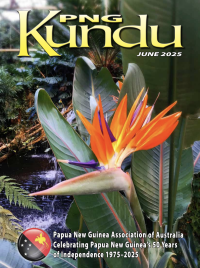Great Australian Medical Moments – Pt2 – Dr Michael Alpers and Kuru
ABC’s Nightlife with Suzanne Hill on 28 December 2020 featured a fascinating interview with Emeritus Professor Robert Clancy – Clinical immunologist (pioneer in a field known as mucosal immunology) and author of the forthcoming book, ‘The Long Enlightenment: Australian science from its beginning to the mid 20th century’, and Dr Peter Hobbins – Historian of Science, Technology and Medicine, and an Honorary associative at the University of Sydney.
The section which particularly relates to Papua New Guinea commences 12.25 into the interview and ends at about 21.50.
Robert Clancy highlights the enormous influence Dr Michael Alpers, a PNGAA member and former Director at the Papua New Guinea Institute of Medical Research for 23 years, had on him. Clancy tells how Alpers taught him the importance of understanding disease and context; of large numbers and the community and culture in which it exists. Dr Alpers spent much of his life studying kuru, a degenerative disease of the brain, and tropical infectious diseases. This work on kuru opened a new field of human medicine and led to the discovery of prions, proving that protein shapes were able to self-replicate (such as in Creutzfeldt-Jakob Disease, a variant of ‘Mad Cow Disease’). This was totally different to previous knowledge about viruses.
Dr Alpers spent a great amount of time in the field gathering layers of information about kuru, collecting and preserving specimens and then working with American scientist Carleton Gajdusek.
Gajdusek was a dynamic, if controversial, figure who later won the Nobel Prize (1976) for his kuru-related work and who was, later still, convicted and jailed for child molestation.
Whilst Alpers’ and Gadjusek were long term friends, many considered it unjust that Alpers did not have the international support to share this Nobel Prize and that others were not so well recognised for their great contribution to this influential research.
Link is HERE.



